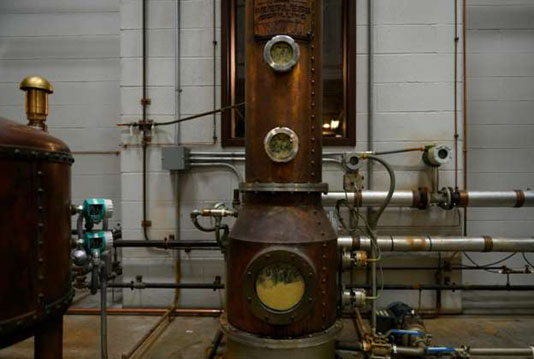LOUISVILLE, United States, May 5, 2019 (BSS/AFP) – Just a few months ago,
Kentucky bourbon was taking the world by storm.
Long a quaint drink for grandfathers, the quintessentially American spirit
made with local corn and the bluegrass region’s almost mythical limestone
water at last was a hit with bar goers in Madrid, Tokyo, London, Sydney,
Paris, Warsaw and Berlin.
Hipster nostalgia revived the thirst for age-old bourbon and rye cocktails
from the American South and the Jazz Age, like the Manhattan, the Old
Fashioned, the Sazerac and the Mint Julep.
Distillers poured billions into new production, promotion and hiring.
“The biggest problem in the last few years has been that we can’t make it
fast enough,” Eric Gregory, president of the Kentucky Distillers Association,
told AFP.
But then, in the middle of last year, came President Donald Trump’s trade
wars.
To retaliate for stinging new US tariffs on steel and aluminum imports,
Mexico, Canada, China and the European Union slapped import duties on
American whiskies, causing soaring export growth to crash.
Turkey raised tariffs on all US spirits to 140 percent from zero.
After soaring 28 percent in the first six months of 2018, whiskey exports
fell 11 percent in the second half, a period including Christmas and New
Year’s, when demand for liquor typically rises, according to the Distilled
Spirits Council.
Kentucky produces 95 percent of the world’s bourbon and the industry has
been growing by double digits for years, Gregory said.
“I don’t think anybody thought this was going to be a long-term issue,” he
said. “We’re continuing to get nervous, anxious, skittish, whatever adjective
you want to use.”
Unlike the iconic motorcycle maker Harley-Davidson, which announced last
year it would offshore some production to get around EU tariffs, the bourbon
industry cannot simply side-step the tariffs because by law bourbon cannot be
made outside the United States, he said.
– ‘Collateral damage’ –
It was no coincidence that US trade partners targeted US whiskies, and
bourbon in particular.
Kentucky happens to be home to Mitch McConnell, the powerful Republican
leader in the US Senate, and is a deep red state which Trump carried easily
in the 2016 presidential elections.
And Republican Congressman Andy Barr’s district includes much of the
industry and was handily carried by Trump in 2016.
But Barr narrowly escaped defeat in November’s mid-term elections at the
hands former Marine fighter pilot Amy McGrath, a Democrat who campaigned
against Trump’s tariffs, lamenting the harm suffered by bourbon distillers,
farmers and auto manufacturers.
Distilling is among the state’s proudest job generators, employing an
estimated 20,000 workers and creating $8.6 billion in annual economic output,
making the sting of the tariffs especially acute, according to the distillers
association.
Nevertheless, with the US economy chugging along and American wages
rising, the domestic whiskey market is still a strong business driver,
according to David Mandell, president of Bardstown Bourbon Company in
Kentucky.
Annual production has doubled in the last decade, with 1.7 million new
barrels produced in 2018, the most since 1972. The volume dwindles as the
bourbon ages in storage for years before sale.
“We’re full speed ahead. We see tremendous growth here in the US market,”
said Mandell, whose company performs what he calls “collaborative”
distilling, designing new products with partner companies.
But Bardstown sends comparatively little abroad, he said.
Meanwhile, the sudden drop in exports is a painful bump in the road, 25
years after the United States and the EU agreed to drop all tariffs on the
trade in spirits.
“We’re collateral damage in disputes that have nothing to do with the
spirits sector,” said Christine LoCascio, senior vice president for
international affairs at the Distilled Spirits Council in Washington.
“The longer this goes on, the more painful it is,” she told AFP added.
“We’ve heard story after story from small distillers. Once the threat of
tariffs was announced…they stopped getting their phone calls returned.”



